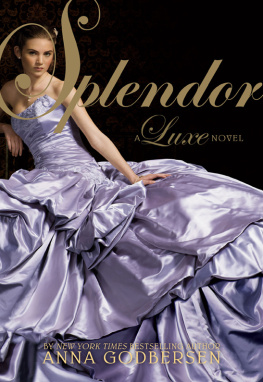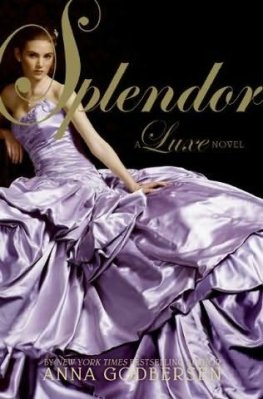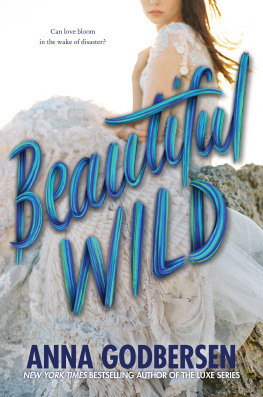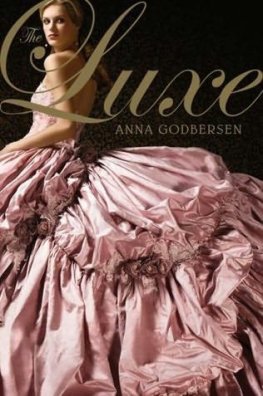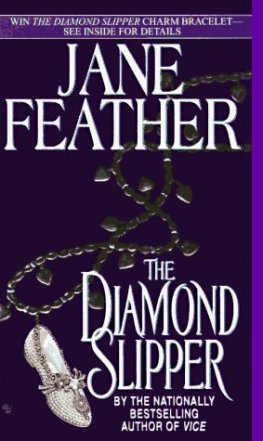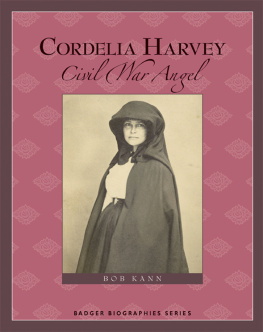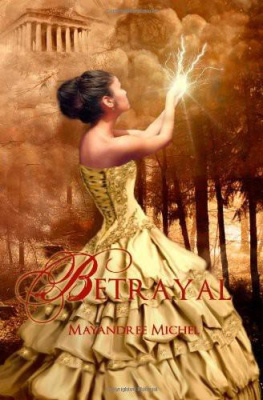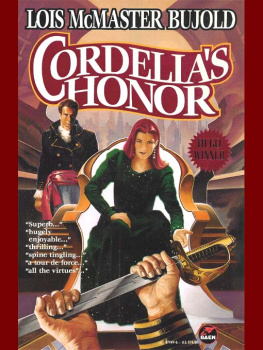Bright Young Things
with Bonus Material
Anna Godbersen

For the Coven
CONTENTS
Something bright and alien flashed across the sky and for a moment people set down their glasses in country clubs and speakeasies and thought of their old best dreams. Maybe there was a way out by flying, maybe our restless blood could find frontiers in the illimitable air. But by that time we were all pretty well committed; and the Jazz Age continued; we would all have one more.
F. Scott Fitzgerald, Echoes of the Jazz Age, The Crack-Up
IT IS EASY TO FORGET NOW, HOW EFFERVESCENT AND free we all felt that summer. Everything fades: the shimmer of gold over White Cove; the laughter in the night air; the lavender early morning light on the faces of skyscrapers, which had suddenly become so heroically tall. Every dawn seemed to promise fresh miracles, among other joys that are in short supply these days. And so I will try to tell you, while I still remember, how it was then, before everything changedthat final season of an era that roared.
By the summer of 1929, when the weather was just getting warm enough that girls could exhibit exactly how high hemlines had risen, Prohibition had been in effect for so long it had ceased to bother anyone much. The city had a speakeasy per every fifty souls, or so the preachers liked to exclaim on Sundays, and sweet-faced girls from the hinterlands were no longer blinded by wood alcohol, for the real stuff had become plenty easy to get. The Eighteenth Amendment had converted us all to grateful outlaws.
We did whatever we liked and dressed in whatever we thought smart and broke rules for the sport of itdiving into public fountains, mixing social classes as casually as we mixed cocktails. There were no longer exclusive balls given for a few people with old money and good names, and even if there were, no one would have cared to go. Nice girls wore the kind of makeup that thirty years before would only have been seen on actresses, and actresses were escorted publicly by the scions of shipping fortunes, and some of them did not even bother to disguise their Bronx accents. Girls took to dressing like boys, and though women had obtained the vote, we had swiftly moved on to pursuing flashier freedoms: necking in cars and smoking cigarettes and walking down city streets in flesh-colored stockings.
New York was the capital of commerce and joy, and young people sought us from every direction. They came in droves, to join the kind of party only a great metropolis can host. They came from wealthy families and farming families, from the north and south and west. They came to avoid kitchens and marriages, to a place where they could reasonably claim to be eighteen forever. Or for the foreseeable future, anyway, which seemed to us the same thing. They came, mostly, for the funespecially the young things, especially the girls.
I cant remember very many nowalthough there are three, from that last incandescent summer, whom I resist forgetting. They were all marching toward their own secret fates, and long before the next decade rolled around, each would escape in her own wayone would be famous, one would be married, and one would be dead.
That is what I want to tell you about: the girls with their short skirts and bright eyes and big-city dreams.
The girls of 1929.
THE HANDFUL OF WEDDING GUESTS WERE ALREADY assembled in the clapboard Lutheran church on Main Street, and though they had been waiting for a quarter hour, any stray passerby might have noticed a lone girl still loitering outside. It was past four oclock on that sleepy Union, Ohio, Sunday, and the dappled afternoon sun played on her high, fine cheekbones and on the strands of her loosely braided honey-and-bark-colored hair. The girl was just eighteen, and had graduated from Unions one-room high school two weeks earlier. If that passerby had bothered to ponder her eyeswhich were the sweet, translucent brown of Coca-Cola in a glasshe might have recognized in them a brewing agitation.
She let those eyes drift to the glaze of sun between the tree branches overhead; her lips parted, and she let out a breath. The homemade dress she wore was of simple white cotton, and though the style was not entirely appropriate for the eventshe had tried, but mostly failed, to sew it in the shorter, sportier fashion now worn in citiesthe color marked her as the bride.
Through the narrow windows she could see the guests in their pews and the tall figure of the only boy in Union who had ever paid her any attention, standing patiently at the altar. He was wearing his fathers black suit, and his sand-colored hair was a little overgrown and rough around his face, which was big and pleasing but not yet a mans. The sight of him made her agitation worse, and she drew back a little and closed her eyes. Everything had happened so quickly. She hadnt really believed there would be a wedding until that morning, when she woke up and it suddenly dawned on her that her situation was quite real.
Cordelia!
She turned at the sound of her name and saw her best friend, Letty Haubstadt, whose eyes stood out like two pure blue planets against the white oval of her face. Her dark hair was parted down the middle and pinned back, and her petite body was clothed in the same black dress and black tights and black shoes her father always insisted she wear. The sight of Letty reassured Cordelia some, even if her garb was a little funereal for a wedding, and she managed to almost smile.
Im sorry it took me so long, Letty told her, smiling more broadly. Then she untucked the folded yards of mosquito netting that shed been carrying under her arm, shook it out, and stood on her tiptoes to arrange it over the taller girls head. I know your aunt says you dont deserve one, but I just think it wouldnt be a wedding if the bride wasnt wearing a veil.
There was a sharp rapping on the windowpane, and both girls looked up to see Cordelias aunt Ida, her thin lips set in a hard grimace, looking down at them expectantly. Cordelia gave her aunt a curt nod and turned back to her friend.
Letty handed her a bouquet of yellow wildflowers, which she must have picked on the way there, and then asked, Are you ready?
Cordelia glanced up to make sure her aunt had returned to her seat, and then pulled the netting away from her face so that she could look directly at her friend. She swallowed hard, and said, Lets go tonight.
Lettys smile fell, and her face grew pale. Tonight?
Youll never be a star if you stay here. Cordelia fixed her friend with an intense gaze. She was merely saying out loud what they both knew to be true. The train leaves at six fifty-two from the Defiance Station.
There was only one train a day in that part of the state that would carry you all the way to New York Citya fact Cordelia had known for years. She knew the timetable by heart, for running away was an obsessive fantasy that had carried no special urgency until the dawning hours of that particular day, when the notion that she was to be married had ceased to seem absurd and faraway, and she had begun to apprehend it with a kind of dread. By the time shed risen to help her aunt with breakfast, the plot to leave had taken on a decided shape, and though her mind had pulsed with it all morning, Cordelia had not imagined she might be brave enough to go until she said it out loud to Letty.
There was no discussion. Letty repeated the trains departure time and nodded. Then Cordelia replaced the netting over her face and followed her friend up the creaking wooden steps to the church. She glanced back once, at the little gabled structureshouses and storefronts and churchesthat constituted Union, where she knew everyone by name, and everyone knew her as the parentless girl with the perpetually scraped knees. In a few hours she would be on a train, and all this would be lost to her. By then the dusk would have settled in and the darkness would be soon to followand in that part of the world the darkness could go on and on forever, as though there would never be light again. She hadnt ever been able to tolerate that very well.
Next page

